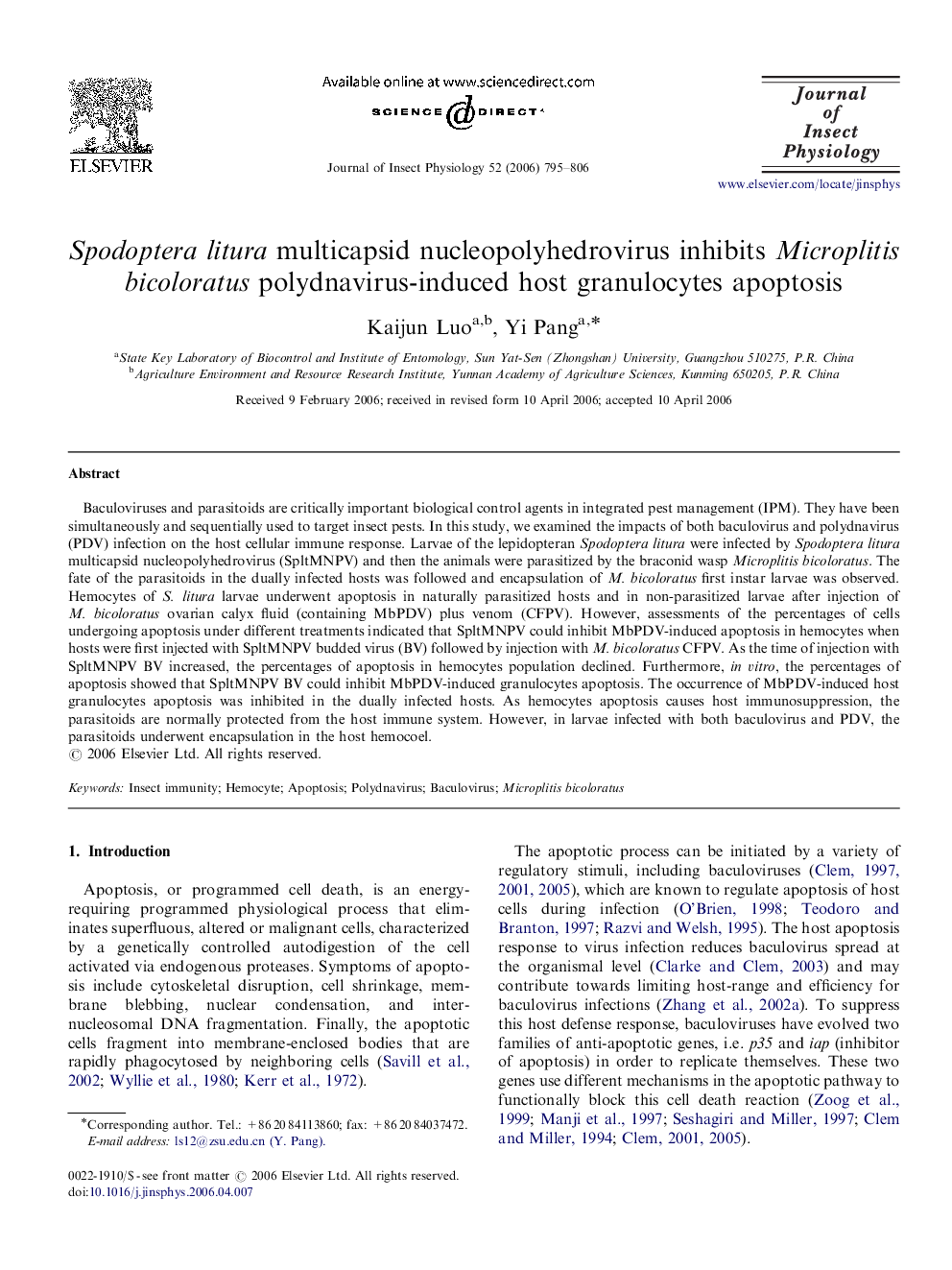| Article ID | Journal | Published Year | Pages | File Type |
|---|---|---|---|---|
| 2841763 | Journal of Insect Physiology | 2006 | 12 Pages |
Baculoviruses and parasitoids are critically important biological control agents in integrated pest management (IPM). They have been simultaneously and sequentially used to target insect pests. In this study, we examined the impacts of both baculovirus and polydnavirus (PDV) infection on the host cellular immune response. Larvae of the lepidopteran Spodoptera litura were infected by Spodoptera litura multicapsid nucleopolyhedrovirus (SpltMNPV) and then the animals were parasitized by the braconid wasp Microplitis bicoloratus. The fate of the parasitoids in the dually infected hosts was followed and encapsulation of M. bicoloratus first instar larvae was observed. Hemocytes of S. litura larvae underwent apoptosis in naturally parasitized hosts and in non-parasitized larvae after injection of M. bicoloratus ovarian calyx fluid (containing MbPDV) plus venom (CFPV). However, assessments of the percentages of cells undergoing apoptosis under different treatments indicated that SpltMNPV could inhibit MbPDV-induced apoptosis in hemocytes when hosts were first injected with SpltMNPV budded virus (BV) followed by injection with M. bicoloratus CFPV. As the time of injection with SpltMNPV BV increased, the percentages of apoptosis in hemocytes population declined. Furthermore, in vitro, the percentages of apoptosis showed that SpltMNPV BV could inhibit MbPDV-induced granulocytes apoptosis. The occurrence of MbPDV-induced host granulocytes apoptosis was inhibited in the dually infected hosts. As hemocytes apoptosis causes host immunosuppression, the parasitoids are normally protected from the host immune system. However, in larvae infected with both baculovirus and PDV, the parasitoids underwent encapsulation in the host hemocoel.
